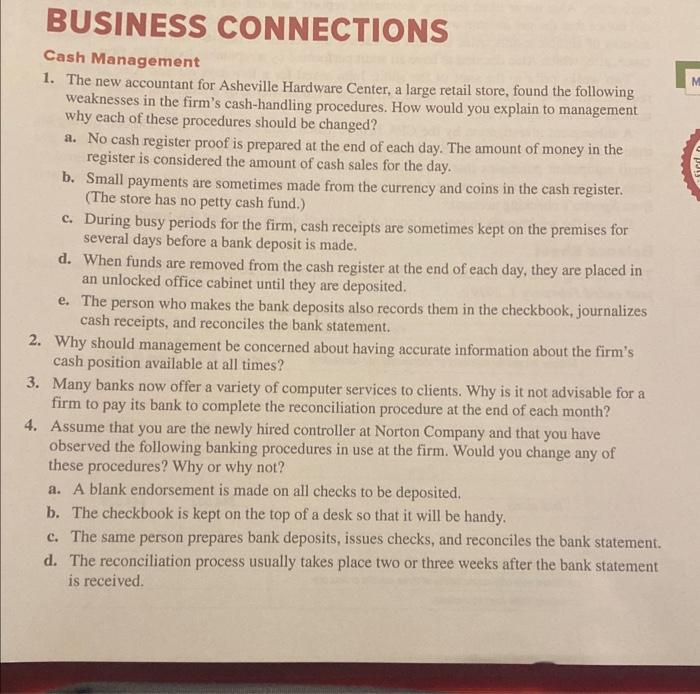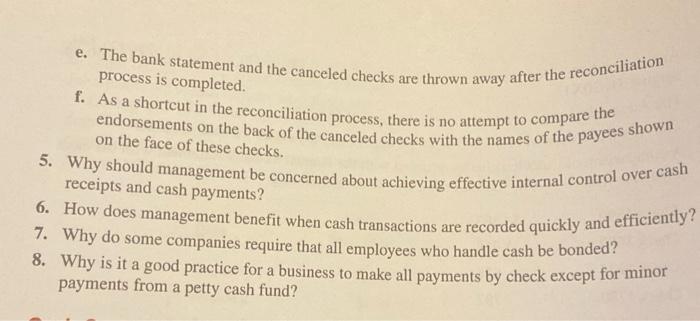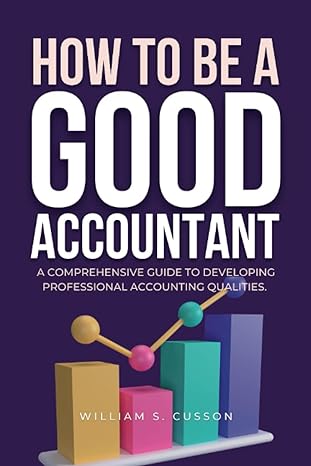Cash Management 1. The new accountant for Asheville Hardware Center, a large retail store, found the following weaknesses in the firm's cash-handling procedures. How would you explain to management why each of these procedures should be changed? a. No cash register proof is prepared at the end of each day. The amount of money in the register is considered the amount of cash sales for the day. b. Small payments are sometimes made from the currency and coins in the cash register. (The store has no petty cash fund.) c. During busy periods for the firm, cash receipts are sometimes kept on the premises for several days before a bank deposit is made. d. When funds are removed from the cash register at the end of each day, they are placed in an unlocked office cabinet until they are deposited. e. The person who makes the bank deposits also records them in the checkbook, journalizes cash receipts, and reconciles the bank statement. 2. Why should management be concerned about having accurate information about the firm's cash position available at all times? 3. Many banks now offer a variety of computer services to clients. Why is it not advisable for a firm to pay its bank to complete the reconciliation procedure at the end of each month? 4. Assume that you are the newly hired controller at Norton Company and that you have observed the following banking procedures in use at the firm. Would you change any of these procedures? Why or why not? a. A blank endorsement is made on all checks to be deposited. b. The checkbook is kept on the top of a desk so that it will be handy. c. The same person prepares bank deposits, issues checks, and reconciles the bank statement. d. The reconciliation process usually takes place two or three weeks after the bank statement is received. e. The bank statement and the canceled checks are thrown away after the reconciliation process is completed. f. As a shortcut in the reconciliation process, there is no attempt to compare the endorsements on the back of the canceled checks with the names of the payees shown on the face of these checks. 5. Why should management be concerned about achieving effective internal control over cash receipts and cash payments? 6. How does management benefit when cash transactions are recorded quickly and efficiently? 7. Why do some companies require that all employees who handle cash be bonded? 8. Why is it a good practice for a business to make all payments by check except for minor payments from a petty cash fund








